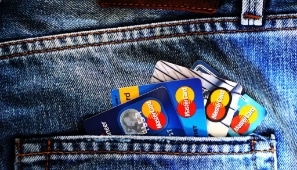A Debt Relief Order is a formal insolvency procedure to help you deal with debts you can’t afford to repay.
It can be a cheaper alternative to some of the most popular debt solutions available on the market, such as an Individual Voluntary Arrangement (IVA) or bankruptcy.
It can prevent you from having to pay certain debts for a specified period of time – usually around 12 months – with any remaining debts written off when the Debt Relief Order (DRO) period comes to an end if nothing changes during this time.
If any of your debts were accumulated through fraud, however, this must be included in your DRO application when you apply for a DRO and you will be required to repay these debts when you leave the arrangement.
If you are struggling to know where to turn for help and advice with your escalating money problems or your debts are slowly but surely spiraling out of control, a DRO may be the right debt solution for you.
How does a DRO differ from an IVA?
A Debt Relief Order is often confused with an Individual Voluntary Arrangement (IVA) but there are some differences between both debt relief options.
An IVA, for example, is an agreement that you come to with you creditors to allow you to repay your debts in a way that suits both you and your creditor. This involves regular, affordable payments over the course of five or six years.
A DRO, on the other hand, differs from an IVA in that you are not required to repay any of your debts for a fixed period of time whereas an IVA only freezes any interest and charges on your existing debts.
The debt relief solution you choose will depend on your individual financial situation and your eligibility.
Does a DRO have hidden fees?
If your DRO application is successful, you will be required to pay a non refundable fee of £90 to the Insolvency Service. Unlike some other debt relief solutions, there are no reductions or exceptions if you are on a low income or benefits.
You may, however, be able to pay in instalments or apply to a charity for help. Joint applications and joint fees not permitted with a DRO.
Can a DRO be revoked?
If your circumstances change at any point during your moratorium period and you are able to repay some of your debts to your creditors with a lump sum, for example, your DRO may be revoked.
If this happens, you may be forced to repay any debts included to your creditors and find an alternative debt relief solution to repay your debts.
A DRO can also be revoked for the following reasons:
- If you acquire property worth more than £2,000
- Your income increases to the point where you have more than £75 left over at the end of the month
- You omitted key information from your application
- You forget to inform the official receiver of a change in your circumstances
- You failed to meet the criteria during the initial application process
- You didn’t cooperate with the official receiver
- You didn’t comply with the restrictions placed on you
- You obtained your DRO through fraudulent means
How does a DRO work?
A Debt Relief Order (DRO) is a relatively simple and straightforward solution that can help you regain control of your financial affairs. It, essentially, works by freezing any qualifying debts you may have with no need to make further payments on all the debts you owe to all the creditors for a specified period of time.
DROs are only available in England, Wales, and Northern Ireland with certain restrictions for qualifiers living in Northern Ireland.
You can only apply for a DRO through approved intermediaries that act as authorised debt advisors to provide debt advice and complete the application on your behalf.
The role of the official receiver
Your application will be sent to an official receiver, which is an officer of the bankruptcy court, to decide whether your DRO will be granted and your excluded debts to creditors will eventually be written off. This decision will be made within 10 days.
If an official receiver finds anything that may affect your application, it may be refused and you may be forced to find an alternative debt relief solution that better suits your individual financial situation.
A DRO is legally bound
A DRO is a legal arrangement and the creditors listed on your DRO will be legally bound. This means that if a creditor asks you to repay your debts during this time, you can refuse.
DROs are only issued if you have been deemed highly unlikely to clear your debts and other methods of debt help, such as crisis loans or credit counselling, have been tried but proven unsuccessful in the past.
Who qualifies for a DRO?
DROs are only issued for applicants with certain qualifying debts to creditors.
You will qualify for a DRO if you meet any of the following requirements:
- You have few assets or assets worth less than £2,000 (£1,000 in Northern Ireland)
- You have a relatively low income
- You have little surplus income
- You owe money that accounts to less than £30,000 (£20,000 in Northern Ireland)
Northern Ireland
In Norther Ireland, the rules for applicants of a DRO differ slightly from applicants from England and Wales.
They must, for example, also have no more than £50 per month in surplus income after all expenses have been paid with the Insolvency Service also dealing with insolvency matters in Northern Ireland.
Key considerations
If you have successfully qualified for a DRO, you will be entitled to free advice to guide you through the process from start to finish.
Your DRO will, however, also show up on your credit file and may impact your credit score for up to six years.
What types of debt are covered by a DRO?
A Debt Relief Order over covers a wide range of qualifying debts. This includes:
- Loans
- Overdrafts
- Catalogues
- Credit cards
- Rent arrears
- Council tax
- Benefit overpayments
- Utility bills
- Phone bills
- Income tax if you are paying tax
- National insurance contributions
You must ensure a Debt Relief Order covers all or most of your debts before you start your application.
What types of debt are not covered by a DRO?
As with any debt solution, there are also some excluded debts that you must be aware of before you apply for a Debt Relief Order.
This includes the following:
- Student loans
- Confiscation orders
- Social Fund loans
- Magistrates’ courts fines
- Child maintenance
- Maintenance arrears
If your debts have accumulated over the years due to missed child maintenance payments, for example, a Debt Relief Order is unlikely to be the right debt relief solution for you at this time.
How do you apply for a DRO?
The process of applying for a Debt Relief Order is relatively simple and straightforward. To increase your chances of being accepted, there are some steps you must follow.
Get free debt advice
If you are interested in applying for a Debt Relief Order, you must get free debt advice and familiarise yourself with various debt relief options before you make a final decision.
A debt adviser from The National Association of Citizens Advice Bureaux or debt adviser from the National Archives can answer any questions you may have.
This can help you make a decision regardless of whether you are behind on your national insurance payments, are in rent arrears, or are looking for an approved intermediary.
If you are worried you may be falling into rent arrears, it may be worth talking to your landlord first.
This can also let you know what creditors can be listed and what creditors can be left out from your application.
Work with an approved intermediary
To apply for a DRO, you must first appoint an official receiver. In the case of a liquidation, an insolvency practitioner is appointed by the company director or creditor on behalf of the limited company or limited company registered to an office address.
An approved intermediary is also known as an authorised debt adviser.
Make your Debt Relief Order (DRO) application and pay the fee
If you are ready to proceed with your DRO, you must make your application and pay your £90 non refundable fee to the Insolvency Service.
You must also make a note of your total debt so you can find out what debts can be included and which shouldn’t be included.
What can a Debt Relief Order (DRO) affect?
A Debt Relief Order stays on your record for six years. This may affect a future credit application or tenancy agreement. If your tenancy agreement has a clause on insolvency, it may be terminated.
Checking your credit file
Your credit file is held by the three main credit reference agencies in the UK. These are Experian, TransUnion, and Equifax.
You can check this information at any time and make any changes if and when you need to.
Does a Debt Relief Order (DRO) help you deal with normal household expenses?
Household bills
Debt Relief Orders can help you with a wide range of debt repayments. You will, however, still be required to pay some normal household expenses, such as household bills, during this time.
Debt relief restriction order
If the official receiver believes that you purposely made your financial situation worse before you applied for a Debt Relief Order or you have been dishonest at any point during the application process, a debt relief restrictions order (DRRO) may be made against you.
This means the restrictions that are in force during your DRO will be extended for up to 15 years.
If you fail to follow these restrictions, you will be committing an offence and you may be fined or even sent to prison.
DROs and hire purchase or conditional sale
If you have a hire purchase or conditional sale agreement and are not in arrears, you can choose to exclude them from your Debt Relief Order application.
If you are already in arrears, however, it must be included at the very beginning to ensure your payments to your creditor are stopped sooner rather than later.
There are some exceptions
If you currently have a vehicle on hire purchase or conditional sale agreement that is worth £2,000 or more, this is unlikely to be an allowable expense. It must, therefore, be included in your initial Debt Relief Order application.
The only exceptions to these rules is if a third party is willing to take on your agreement on your behalf or there are exceptional circumstances that mean your vehicle payments meet a basic domestic need.
Goods other than vehicles
If you have a hire purchase or conditional sales agreement on goods other than vehicles, you can decide to leave it out of your Debt Relief Order application.
By doing this, any future payments towards these goods can only be approved if the item is necessary to meet the basic domestic needs of yourself and your family.
If this isn’t the case, any future payments towards these goods must be made by a third party, such as a family member or friend, in order for you to keep the item.
It is also worth remembering that some HPs or conditional sales agreements come equipped with a clause that states that if you get a Debt Relief Order, your creditor has permission to end the agreement.
Do Debt Relief Orders affect your credit rating?
They can affect future credit applications
In short, Debt Relief Orders do affect your credit rating.
They stay on your credit report for up to six years and can affect your chances of receiving credit if lenders can see you have struggled to repay debts in the past.
The amount you can borrow without telling the lender that you have a Debt Relief Order will also be capped at £500.
You will also be publicly searchable on a public register from the moment your Debt Relief Order application is approved.
Your details will remain on the public register for the duration of your DRO and removed three months after your arrangement ends making them visible for a total of around 15 months.
Your credit file is held by a credit reference agency
Your credit report is held by the three main credit reference agencies (Experian, TransUnion, and Equifax) and can be checked and amended at any time.
Your DRO application will, however, remain on your credit reference file until it has come to an end and perhaps even for a couple of months after this date.
How do I choose the right debt solution for me?
Get debt advice
It can be difficult to find the right debt solution for you. By getting the right debt advice, you can come to an informed conclusion and make up your own mind as to whether a Debt Relief Order is the right debt relief solution for you at this time.
To come to an informed decision, make the most of free debt advice from money advisers in your local area and take a note debts included in a DRO.
Consider your financial future
If your financial situation is unlikely to change within the next year, you may find Debt Relief Orders beneficial for you.
If you think your financial situation is likely to get better or worse in the next year, on the other hand, other popular solutions, such as an IVA or bankruptcy, may be better suited for you.
By finding out as much information as you can about DROs, you can make a final decision and better your financial future.





